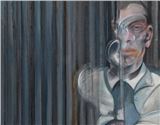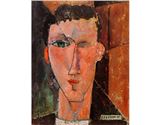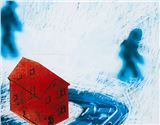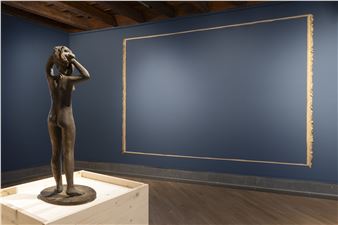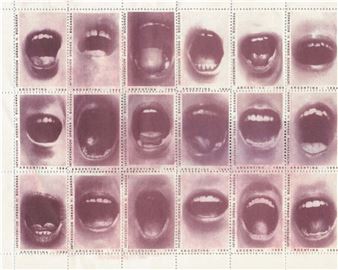1st KlaipД—da Biennial: Sunset Every Two Years
This autumn, the KlaipД—da Culture Communication Centre (KKKC) will present its inaugural biennial, вҖҳSunset Every Two YearsвҖҷ, taking place at KKKC and across various public spaces in KlaipД—da. Organised in partnership with the Contemporary Art Centre, the biennial is curated by CAC director, Valentinas KlimaЕЎauskas.
вҖҳTransitвҖҷ (from the Latin transitus вҖ“ meaning passage or change) serves as the keyword of the upcoming Biennial, referring to an intermediate state of transition and transformation. This concept unfolds through several interconnected sub-themes:
First (1), the Biennial itself вҖ“ by its very nature, an event that occurs every two years вҖ“ functions as a transient, recurrent phenomenon. In astronomy, transit refers to the movement of one celestial body across another. The title Sunset Every Two Years poetically evokes a sense of extended, frozen, desynchronised time. It gestures both to modernity as a contradictory period, connecting different worldviews and temporalities, and to KlaipД—da itself, often referred to as вҖҳthe city of sunsetsвҖҷ. As a transit phenomenon, the Biennial offers an opportunity to experience the intersections between planetary and personal time and the field of art.
Second (2), the figure of transit addresses the space of the distinctive and dramatic history of the greater KlaipД—da region, shaped by a century of significant political, urban, and other transformations. This is reflected in the BiennialвҖҷs attention to the past, particularly through historical and other forms of photography.
Third (3), KlaipД—da is a port city, a hub of transit, relocation, and logistics вҖ“ moving freight, passengers, and ferries. In Ancient Greek, the word вҖҳmetaphorвҖҷ (ОјОөП„ОұПҶОҝПҒО¬) means transference or relocation: this notion becomes both a poetic and curatorial strategy within this context. The integration of poetic language into curatorial and architectural processes is one of the key intentions of this Biennial. The exhibition will feature a number of existing works, some of which may have been previously exhibited вҖ“ their relocation, transit, and the creation of new semantic connections are an integral part of the Biennial.
Fourth (4), the regionвҖҷs ecospace is closely tied to ecological and political movements and early examples of contemporary art in Lithuania, such as the campaign-performance Angakoko sugrДҜЕҫimas (Return of Angakokas) by the artist group ЕҪalias lapas (Green Leaf) in Nida in 1990, protesting against oil drilling in the Baltic Sea, and the National Park Status to Neringa campaign (Nida, 1989), among others. Taking into account the danger of chemical weapons buried in the Baltic Sea, the spills of various pollutants, radical historical and contemporary political and other movements, as well as the seaвҖҷs current status as one of the most polluted bodies of water in the world, the Biennial seeks to draw attention to various notions of ecological and other toxicity.
Fifth (5), and finally, this unique ecosystem of the вҖҳsunset landвҖҷ is also an actively regenerative space of rest, wellness, sexuality, and bodily or spiritual rebirth. As a seaside resort or a magical вҖҳedge of the worldвҖҷ, it offers the sensation of time slowing down, of liberating political or sexual bodies, and of opening up the possibility for new worlds and experiences.
Through these lenses, the Biennial will explore transit as a historical, logistical, socio-economic, ecological, extractivist, aesthetic, magical, and poetic theme for possible speculative futures.
The 1st KlaipД—da Biennial (KB1) emerges in response to a lack of large-scale, recurrent, discursive contemporary art events in Western Lithuania. The international KB1 will take place across the premises of the KlaipД—da Cultural Communication Centre (KCCC) and the cityвҖҷs public spaces, with a special focus on the maritime region of KlaipД—da, its history, and the countries along the shores of the Baltic Sea.
The first KB1 is curated by Valentinas KlimaЕЎauskas, who has extensive experience in curating major international events, including the national pavilions of Latvia (2019) and Lithuania (2024) at the Venice Biennale, the Coast Contemporary Contemporary Art Festival in the Lofoten Islands, Norway (2023), and the 14th Baltic Triennial at the Contemporary Art Centre in Vilnius (CAC) (2021), among other projects. KlimaЕЎauskas is currently the Director of the CAC in Vilnius.
The long-term aim of the project is to establish a sustainable, large-scale international contemporary art event in Western Lithuania, fostering collaboration among artists and partner institutions from Northern Europe, the Baltic States, and beyond.
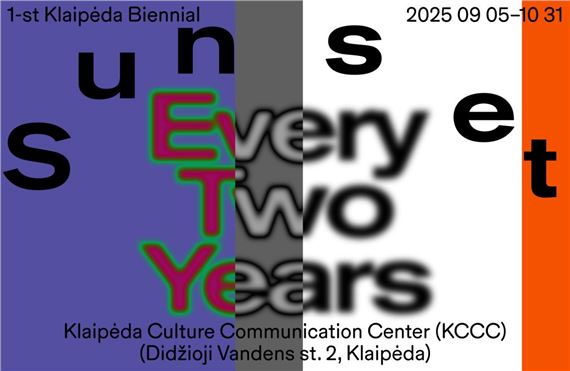
Recommended for you
This autumn, the KlaipД—da Culture Communication Centre (KKKC) will present its inaugural biennial, вҖҳSunset Every Two YearsвҖҷ, taking place at KKKC and across various public spaces in KlaipД—da. Organised in partnership with the Contemporary Art Centre, the biennial is curated by CAC director, Valentinas KlimaЕЎauskas.
вҖҳTransitвҖҷ (from the Latin transitus вҖ“ meaning passage or change) serves as the keyword of the upcoming Biennial, referring to an intermediate state of transition and transformation. This concept unfolds through several interconnected sub-themes:
First (1), the Biennial itself вҖ“ by its very nature, an event that occurs every two years вҖ“ functions as a transient, recurrent phenomenon. In astronomy, transit refers to the movement of one celestial body across another. The title Sunset Every Two Years poetically evokes a sense of extended, frozen, desynchronised time. It gestures both to modernity as a contradictory period, connecting different worldviews and temporalities, and to KlaipД—da itself, often referred to as вҖҳthe city of sunsetsвҖҷ. As a transit phenomenon, the Biennial offers an opportunity to experience the intersections between planetary and personal time and the field of art.
Second (2), the figure of transit addresses the space of the distinctive and dramatic history of the greater KlaipД—da region, shaped by a century of significant political, urban, and other transformations. This is reflected in the BiennialвҖҷs attention to the past, particularly through historical and other forms of photography.
Third (3), KlaipД—da is a port city, a hub of transit, relocation, and logistics вҖ“ moving freight, passengers, and ferries. In Ancient Greek, the word вҖҳmetaphorвҖҷ (ОјОөП„ОұПҶОҝПҒО¬) means transference or relocation: this notion becomes both a poetic and curatorial strategy within this context. The integration of poetic language into curatorial and architectural processes is one of the key intentions of this Biennial. The exhibition will feature a number of existing works, some of which may have been previously exhibited вҖ“ their relocation, transit, and the creation of new semantic connections are an integral part of the Biennial.
Fourth (4), the regionвҖҷs ecospace is closely tied to ecological and political movements and early examples of contemporary art in Lithuania, such as the campaign-performance Angakoko sugrДҜЕҫimas (Return of Angakokas) by the artist group ЕҪalias lapas (Green Leaf) in Nida in 1990, protesting against oil drilling in the Baltic Sea, and the National Park Status to Neringa campaign (Nida, 1989), among others. Taking into account the danger of chemical weapons buried in the Baltic Sea, the spills of various pollutants, radical historical and contemporary political and other movements, as well as the seaвҖҷs current status as one of the most polluted bodies of water in the world, the Biennial seeks to draw attention to various notions of ecological and other toxicity.
Fifth (5), and finally, this unique ecosystem of the вҖҳsunset landвҖҷ is also an actively regenerative space of rest, wellness, sexuality, and bodily or spiritual rebirth. As a seaside resort or a magical вҖҳedge of the worldвҖҷ, it offers the sensation of time slowing down, of liberating political or sexual bodies, and of opening up the possibility for new worlds and experiences.
Through these lenses, the Biennial will explore transit as a historical, logistical, socio-economic, ecological, extractivist, aesthetic, magical, and poetic theme for possible speculative futures.
The 1st KlaipД—da Biennial (KB1) emerges in response to a lack of large-scale, recurrent, discursive contemporary art events in Western Lithuania. The international KB1 will take place across the premises of the KlaipД—da Cultural Communication Centre (KCCC) and the cityвҖҷs public spaces, with a special focus on the maritime region of KlaipД—da, its history, and the countries along the shores of the Baltic Sea.
The first KB1 is curated by Valentinas KlimaЕЎauskas, who has extensive experience in curating major international events, including the national pavilions of Latvia (2019) and Lithuania (2024) at the Venice Biennale, the Coast Contemporary Contemporary Art Festival in the Lofoten Islands, Norway (2023), and the 14th Baltic Triennial at the Contemporary Art Centre in Vilnius (CAC) (2021), among other projects. KlimaЕЎauskas is currently the Director of the CAC in Vilnius.
The long-term aim of the project is to establish a sustainable, large-scale international contemporary art event in Western Lithuania, fostering collaboration among artists and partner institutions from Northern Europe, the Baltic States, and beyond.
Artists on show
- Adam Christensen
- AgnД— JokЕЎД—
- Algimantas Kuncius
- ArЕ«nД— BaronaitД—
- Aske Thiberg
- Bernardas Aleknavicius
- ДҢeslovas Lukenskas
- Clara Schweers
- Doooooris
- DovilД— DagienД—
- Edith Karlson
- Emilija PovilanskaitД—
- GabrielД— AdomaitytД—
- Gintautas Trimakas
- Henrikas Gulbinas
- Irena GiedraitienД—
- Janina Sabaliauskaite
- Joachim Koester
- Julija SkudutytД—
- Karla Gruodis
- Katja Novitskova
- Lesia Vasylchenko
- Liudvikas Ruikas
- Madeleine Andersson
- Malka Sultan
- Marija SuДҚilaitД—
- Matti Aikio
- Mikalojus Ciurlionis
- Milda DrazdauskaitД—
- Nina Beier
- Patrick Staff
- Paulina MongirdaitД—
- Paulius Makauskas
- Raimundas Urbonas
- Remigijus Treigys
- Rodion Petroff
- Romualdas Pozerskis
- Simon Dybbroe Møller
- Tekla Aslanishvili
- Veronika Е leivytД—
- Vidmantas IlДҚiukas
- Viktor Timofeev
- Virgilijus Е onta
- Vitalija PetraitytД—
- Vytautas DaraЕЎkeviДҚius

 ARTISTS
ARTISTS
